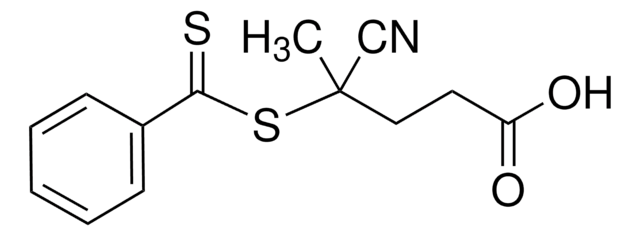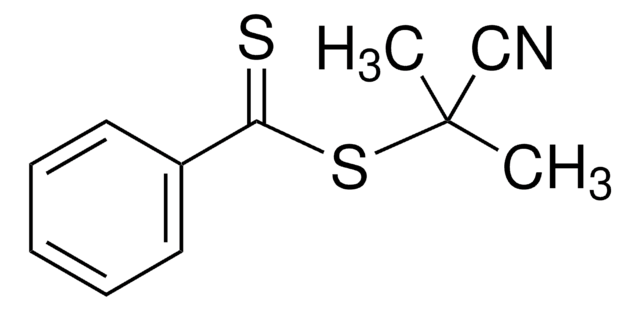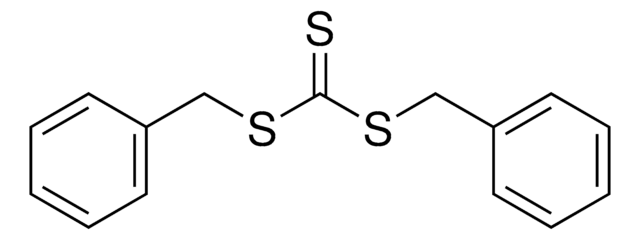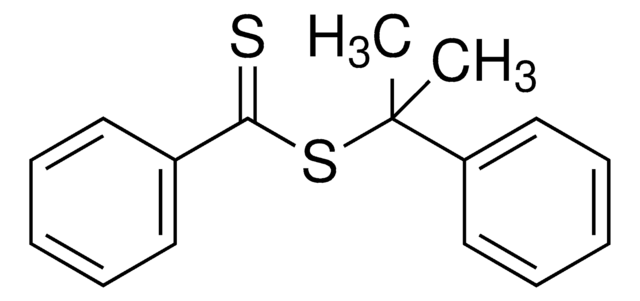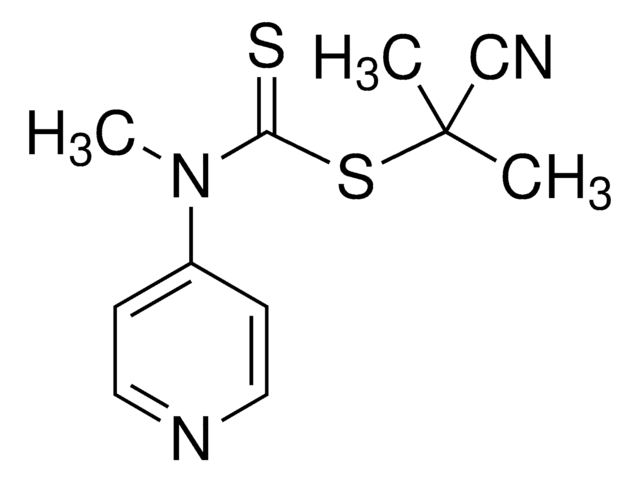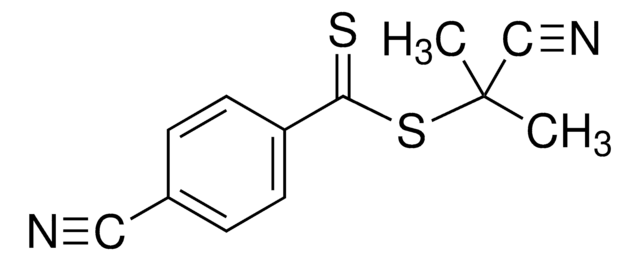723002
Cyanomethyl methyl(phenyl)carbamodithioate
98% (HPLC)
Synonym(s):
Cyanomethyl N-methyl-N-phenyl dithiocarbamate
About This Item
Recommended Products
Quality Level
Assay
98% (HPLC)
form
powder
mol wt
average Mn 8,000
mp
88-92 °C
storage temp.
2-8°C
SMILES string
CN(C(=S)SCC#N)c1ccccc1
InChI
1S/C10H10N2S2/c1-12(10(13)14-8-7-11)9-5-3-2-4-6-9/h2-6H,8H2,1H3
InChI key
FYACMHCOSCVNHO-UHFFFAOYSA-N
Related Categories
General description
Application
Signal Word
Warning
Hazard Statements
Precautionary Statements
Hazard Classifications
Skin Sens. 1
Storage Class Code
11 - Combustible Solids
WGK
WGK 3
Flash Point(F)
Not applicable
Flash Point(C)
Not applicable
Choose from one of the most recent versions:
Already Own This Product?
Find documentation for the products that you have recently purchased in the Document Library.
Customers Also Viewed
Articles
The supply of low cost, high purity and effective Reversible addition−fragmentation chain-transfer (RAFT) Agents is the essential element in the industrial implementation of RAFT polymerization technology.
A series of polymerization were carried out using RAFT agents and monomers yielding well-defined polymers with narrow molecular weight distributions.
RAFT (Reversible Addition Fragmentation chain Transfer) polymerization is a reversible deactivation radical polymerization (RDRP) and one of the more versatile methods for providing living characteristics to radical polymerization.
Over the past two decades, the rapid advance of controlled living polymerization (CLP) techniques.
Protocols
RAFT (Reversible Addition-Fragmentation chain Transfer) is a form of living radical polymerization involving conventional free radical polymerization of a substituted monomer in the presence of a suitable chain transfer (RAFT) reagent.
Sigma-Aldrich presents an article about RAFT, or Reversible Addition/Fragmentation Chain Transfer, which is a form of living radical polymerization.
We presents an article featuring procedures that describe polymerization of methyl methacrylate and vinyl acetate homopolymers and a block copolymer as performed by researchers at CSIRO.
Our team of scientists has experience in all areas of research including Life Science, Material Science, Chemical Synthesis, Chromatography, Analytical and many others.
Contact Technical Service![4-Cyano-4-[(dodecylsulfanylthiocarbonyl)sulfanyl]pentanoic acid 97% (HPLC)](/deepweb/assets/sigmaaldrich/product/structures/204/925/30ae6ca0-5b0b-4963-a061-7e5e3d1a85af/640/30ae6ca0-5b0b-4963-a061-7e5e3d1a85af.png)
